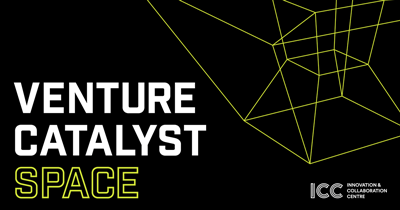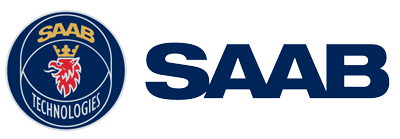Article Lead In
22 November 2021
AUTHOR: BRONWYN HURRELL
> BREAKOUT STORY: The value of partnering with universities
Education providers are increasingly working with the private sector to address skills gaps. We go behind the scenes of the creation of an innovation academy to understand the secrets of successful partnerships.
At the height of the global pandemic, when borders slammed shut with a moment’s notice and business meetings were being held via video conference rather than in conference rooms, University of South Australia Vice Chancellor Professor David Lloyd was negotiating a major deal.
The agreement – between Fortune 500 professional services company Accenture and one of the world’s top young universities – would establish an Innovation Academy to disrupt business education as we know it.
At face value, trying to execute a deal of this magnitude during a pandemic was not ideal.
“It seemed that every time we went to have a conversation there was a lockdown,” Prof Lloyd says.
Shuffling back and forth between Melbourne and Adelaide, UniSA and Accenture staff were tiptoeing between lockdown upon lockdown.
The value of solid foundations

Accenture Operations Lead for Australia and New Zealand Jordan Griffiths says that between lockdowns his team came to Adelaide for a two-day workshop to finesse and build the Innovation Academy idea.
“As part of that we had a bit of fun, we learnt how to work together, which is all part of the partnership and so that was great – and then we went into the next round of lockdowns,” Griffiths says.
They were less than ideal circumstances but they provide a case study in the importance of solid foundations, which in the case of UniSA and Accenture, were built over several years.
When meetings in 2020 were forced onto Microsoft Teams or Zoom, the rapport between key staff had long been established.
In 2019, Accenture and UniSA consolidated their Heads of Agreement to establish a base at UniSA’s Innovation Collaboration Centre (ICC).
By coming together in this way, Accenture and UniSA were collaborating to solve real-world problems and providing a space for others to co-create – from government bodies to startups and community groups.
“But we were still trying to find out what it was we could do together,” Prof Lloyd says.
That materialised as the relationship developed.
Accenture Chairman for Australia and New Zealand Bob Easton was sitting in the Hawke Building on North Terrace in Adelaide in late 2020 when he ignited a spark.
“In the course of that conversation, Bob asked me what it was that was the true north of UniSA,” Prof Lloyd says.
“I talked about the provision of contemporary curriculum to underpin the employability of our students and the delivery of contemporary research to underpin the productivity of our partners.”
Easton asked Prof Lloyd what was the one thing they could do together that would make a massive difference to the way UniSA approaches its business.
Identifying a gap between education and business
Universities are accreditors of knowledge and yet, companies tend to be the consumers of that knowledge – and they know where the gaps are.
Prof Lloyd envisioned Accenture and UniSA coming together to prescribe the solution to the skills gap.
“I pitched to Bob and his team the idea that UniSA could be a vehicle, if coupled to Accenture, to transform business education – and the concept of the Innovation Academy was born,” he says.
“Then we started to talk about what is this disruption? What form will it take? How do we deliver and build a partnership?”
Accenture and UniSA staff dispersed to look at skills gaps – the fact that digital business and digital fluency in business is where there are enormous gaps in the workforce in Australia.
“We had been working with UniSA on other things for an extensive period of time,” Griffiths says.
“We had always explored the openness of potential partnerships to bring the best of UniSA and the best of Accenture together to help solve problems for the University but also to help solve problems that we have across Australia.
“During the pandemic, there was a huge amount of disruption that was occurring across the sector.
“As part of that, the University of South Australia did amazingly well compared to its peers.
“Because of the nature of South Australia as well as proximity, the types of courses offered, and probably a little less international impact than some of the other universities, UniSA fared very well.
“I think that has meant the team’s been able to not only manage the day-to-day of a very complex university through a bit of adversity and change, but actually use that as an opportunity to springboard into new opportunities and partnerships.
“We used that as an opportunity to launch into some of the other problem areas that are in the education sector – about trying to enhance the digital skills of the broader workforce, and to provide a new set of skills for the younger generation who need to use those in their business and technology degrees.
“The kernel of the partnership was built on trust and doing something different.
“We had lots of different ideas but we settled on the idea of doing the Innovation Academy that would really bring the best of both parties together to do something very different in the Australian marketplace.”
Disrupting the market
Accenture’s content – a trove of real-life case studies – and UniSA’s online education platform, provided the foundations and the partnership to form the Innovation Academy in Digital Business, which was announced in September 2021.
The Bachelor of Digital Business, designed and custom built leveraging real-world Accenture material and case studies, will be launched in 2022. The academy also will focus on upskilling and reskilling established workforces in leading-edge digital business practices.
Leading higher education sector publication Campus Morning Mail has heralded the announcement as a “signature project” for Prof Lloyd.
“This is a big win for UniSA – it could be transformative, creating an international education product designed for people who want recognition of a globally recognised skill-set but can’t afford to travel internationally. And while many of them may not have heard of UniSA a bunch of them will know about Accenture,’’ CMM editor Stephen Matchett reported.
Education is an emerging focus for Accenture and its Australian leadership is excited about what the future holds through the Innovation Academy.
Griffiths says they are thrilled to be working with UniSA and believe the Innovation Academy will “transform how we think about business education, locally and globally”.
“The academy will give students real-world applicability to their studies as well as contributing to the upskilling of Australia, by developing talent that is equipped for the technology-driven future,” he says.
“I love working with David and his team. It’s refreshing, it’s exciting and we’re starting this partnership with a minimum viable product but there’s no limit to the scope and where we might take it.
“We often talk about launching globally, about what other digital domains we might be able to support.
“I love that because it’s always about trying to disrupt and challenge the current marketplace.”
When Accenture and UniSA put in place a framework for broad collaboration in 2019, a co-branded, co-designed degree and professional development was not on anybody’s radar.
“It’s the evolution of the relationship to what could be a revolutionary partnership,” Prof Lloyd says.
It’s early days to be talking about what success looks like for the Innovation Academy. However, Prof Lloyd is clear: “Success is an enduring partnership – it’s not a flash in the pan.”
Find out more about the Innovation Academy in Digital Business and the Bachelor of Digital Business on the UniSA website.
The value of partnering with universities
Whether in the public, private or not-for-profit sector, leaders increasingly value partnering with universities. Some of UniSA’s partners explain why.
Strong partnerships lie at the heart of many successful ventures, according to Department of the Premier and Cabinet chief executive Nick Reade.
“When two or more parties combine their expertise, the results can make a huge difference to people’s lives,” Reade says.
“As South Australia readies itself to deliver some of the nation’s largest and most complex defence projects, and build on our reputation for innovation, we’ll increasingly look to draw on world-class research and development and a highly skilled workforce – both of which the University of South Australia will play a major part in delivering.
“With many successful partnerships either behind us, underway or soon to commence, the Government of South Australia and University of South Australia have demonstrated just how productive a strong partnership can be.”
Supporting startups to disrupt
Reade says an example of one of the many valuable projects helping South Australia grow, build resilience and thrive, is the Venture Catalyst Space initiative, a globally-competitive program supporting founders of space startup companies to develop innovative or disruptive ideas in the sector, supported by the State Government’s Space Innovation Fund.
“Another partnership I’m excited about is our support for the University’s Australian Centre for Business Growth and its Growing South Australian Companies program,” he says.
“Not only is this a theme that’s close to my heart and background, it’s one that is at the core of our agenda to drive economic growth in our state. I look forward to seeing the progress on these and many more partnerships between us, as we play our part – individually and together – in helping South Australia thrive.”
Building capabilities in defence and space
Defence SA chief executive Richard Price says South Australia plays a key role in building the nation’s sovereign capabilities in defence and space, which relies heavily on leading-edge research and development collaborations and building a capable and skilled workforce through high-quality education.
“Over many years, we have successfully partnered with UniSA in this endeavour, through various initiatives ranging from the Southern Hemisphere Space Studies Program to numerous Defence Innovation Partnership projects,’” Price says.
“These collaborations have brought UniSA’s expertise to the fore, particularly in the areas of autonomous systems, human factor research and advanced materials, contributing to the development of industry-leading products, systems and services that will deliver enhanced capability for defence now and into the future.”
Saab Australia’s University Engagement, Innovation and R&D manager, Dr Dennis Medlow, says Saab recognises the benefits for itself, the University and the broader community
“It facilitates contact between academics and industry, enabling each to see different points of view and the opportunity to identify innovative outcomes,” Dr Medlow says.
“Activities such as working on augmented reality technologies, joint presentations on AI and hardware design, visiting lectureships in cybersecurity and the work done on behavioural modelling are key examples of these collaborations.”
As a Lockheed Martin Fellow, Dr John Towers has worked with UniSA throughout several successful multi-year collaborations.
“Undertaking applied research within industrial design and psychology, UniSA researchers have made a strong contribution to industry by consistently striving for relevant and tangible outcomes that have informed design opportunities and solved difficult engineering issues on the Future Submarine Program,” Dr Towers says.
Babcock Australasia head of customer solutions (Defence & Security), Craig Schwartz says Babcock is excited to collaborate with UniSA on technology development for the Australian Army’s LAND125 Phase 4 Integrated Soldier System.
“Through this partnership, Babcock can access decades of research and expertise through UniSA, which will contribute to the spiral development of technologies and their use by the future Australian soldier and ultimately help generate the best outcome for defence. It was an easy choice to engage with UniSA; they are collaborative, committed and local,” Schwartz says.
Forging opportunities in new industries
Tech company Lumination’s managing partner Tom Hastwell says he has seen opportunities in new industries emerging as a result of partnerships.
“Partnering with the University of South Australia has completely opened up the scope of our offering as a business,” Hastwell says.
“We specialise in immersive technologies and working with UniSA has provided opportunities to bring exciting innovations to new industries.’’
Fostering learning, wellbeing and community
Uniting Communities chief executive Simon Shrapel AM says the collaborative approach the organisation has taken with UniSA has led to initiatives that are “beyond the traditional scope” and are “indicative of an authentic and dynamic partnership”.
“This has and will continue to deliver research outcomes that are of national significance that are both innovative and entrepreneurial, right here in South Australia,” Shrapel says.
The Hospital Research Foundation Group chief executive officer Paul Flynn says some partnerships can be lifechanging.
“At the Hospital Research Foundation Group, we believe everyone deserves someone fighting for their health,” Flynn says.
“We are proud to support innovative and lifesaving medical research led by the University of South Australia that has the potential to change and dramatically improve the lives of South Australians impacted by disease and illness.
“We also support life-changing programs such as the Invictus Pathways initiative which provides community reengagement, tailored training and fitness support for South Australia’s former and current ADF members and first responders.”
Catholic Education South Australia manager for Learning and Wellbeing Pam Ronan says partnerships are “integral to improving the quality of learning and wellbeing for every child and young person in our Catholic schools”.
“Collaborative endeavours have enabled high-level access to the integrity of academic scholarship and quality coaching and capacity building sought by many of our teachers and leaders,” Ronan says.
“UniSA has made significant contributions to the intellectual resources and evidence-based practices underpinning the quality learning and assessment in our Catholic schools, particularly in areas such as STEM, languages, data analytics and entrepreneurial education.”
Giving students industry experience
Channel 44 general manager Lauren Hillman says she is proud of the culture that has been created at the station for students, interns, volunteers and program makers.
“They are part of an environment that supports having a local voice and creating local content every week,” Hillman says.
“Many of our interns have gone on to employment in the industry.
“It’s such an achievement to be able to say that they did their internship at Channel 44, and now they’re ready to be connected to industry and paid employment opportunities.
“One of the most exciting things about our partnership is that we have a seat at the table on the UniSA Creative Advisory Group.
“It’s wonderful to collaborate with other key industry partners in helping shape and informing decisions on what the industry looks like moving forward.”
You can republish this article for free, online or in print, under a Creative Commons licence, provided you follow our guidelines.













